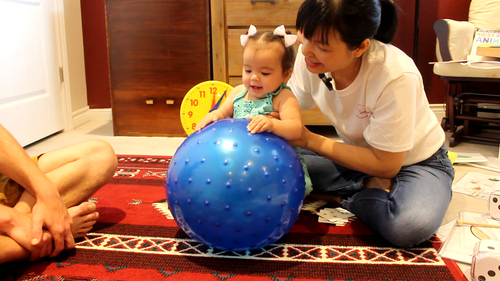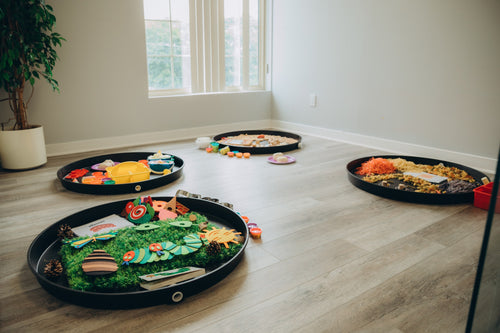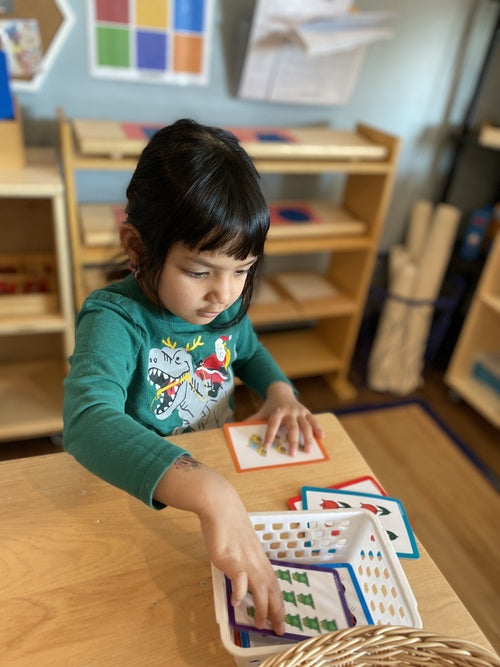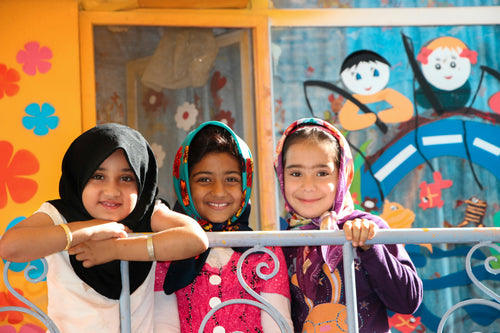5 Mistakes Parents Make That Hurt Focus Time for Toddlers (and How to Fix Them)
Why Focus Time for Toddlers Matters
If your toddler can’t concentrate, loses interest in activities quickly, or struggles to follow simple tasks — you’re not alone. Developing focus time for toddlers is one of the biggest challenges parents face today.

According to a 2023 study by the Journal of Child Psychology and Psychiatry, the average toddler’s focus time span ranges between 2–5 minutes per year of age — meaning a 3-year-old can typically focus for about 6–15 minutes. However, with overstimulation from screens, lack of sensory play, and inconsistent routines, this number can drop dramatically.
Building strong concentration skills early on sets the foundation for academic success, emotional regulation, and lifelong learning. But many well-meaning parents accidentally make choices that reduce their child’s ability to focus — without realizing it.
1. Overloading with Screens and Fast-Paced Content
Tablets and TV shows may look educational, but too much screen time weakens attention development.
A NIH longitudinal study (2022) found that children exposed to high levels of fast-paced digital content before age 5 show reduced activation in brain regions tied to focus and memory.
What to do instead:
-
Replace screen time with sensory play — like puzzles, building blocks, or sand bins.
-
Set daily screen limits (under 1 hour for ages 2–5, as recommended by the American Academy of Pediatrics).
-
Join an enrichment class like Smartizen’s Right Brain Memory Training to build real-world attention skills.
2. Expecting Too Much Too Soon
Parents often feel anxious if their child can’t focus “long enough.” But toddlers’ brains are wired for short bursts of curiosity and exploration.
Pushing structured learning too early can actually make them frustrated — reducing motivation and attention span over time.
Try this instead:
-
Break play or learning into 5–10 minute intervals.
-
Gradually extend activities as your child’s focus time span improves.
-
Encourage open-ended activities like Lego, bead threading, or dot-to-dot drawings to boost concentration skills naturally.
3. Skipping Sensory and Movement Play
Stillness does not equal focus. For toddlers, movement fuels brain activity. Skipping sensory or physical play can slow attention development because their body and brain aren’t working together.
Home activities to improve focus:
-
Vestibular input: play tag, use a balance board, or dance to music.
-
Proprioceptive input: have your child push chairs, carry soft weights, or do animal walks (frog jump, bear crawl).
-
Visual tracking: tracing lines, mazes, or spotting shapes in books.
These activities enhance focus by strengthening the neural pathways responsible for self-regulation and sustained attention.
(Learn more about sensory-based learning in early childhood from Harvard’s Center on the Developing Child.)
4. Over-Scheduling or Constantly Changing Activities
Too many structured activities can actually harm your toddler’s ability to concentrate. Or pressurizing our kids too early to learn but parents forget that kids learn via playing. If your child jumps from one activity to another without downtime, their brain never learns how to stay engaged.
What helps:
-
Allow boredom time — moments where kids entertain themselves.
-
Establish consistent routines — children focus better when they know what to expect.
-
Use tools like flexible seating (bean bags, wobble cushions, or carpets) to help them self-regulate during quiet play.

5. Forgetting Emotional Connection During Learning
“Focus now! Sit still! Concentrate!” Does this sound familiar? Kids feel pressurized and no longer listen. When toddlers feel disconnected or pressured, their focus time span shortens drastically. Emotional safety is key for attention development — it allows the brain’s prefrontal cortex (the “focus center”) to activate fully.
What to do:
-
Practice co-regulation: “I see that you are being distracted. Let’s take deep breaths together before we read this page again!”.
-
Offer encouragement instead of correction: “You are doing great, we have finished 2 Math problems! One more to go!”
-
Join a parent-child learning program like Smartizen’s Baby Enrichment Classes — designed to strengthen both focus and bonding.
Science Behind Toddler Focus Time
Research from the University of Washington’s Institute for Learning & Brain Sciences (I-LABS) shows that toddlers improve attention when activities are:
-
Interactive rather than passive
-
Emotionally engaging
-
Repetitive but varied in sensory input
That’s exactly the method Smartizen uses — combining music, movement, and memory training to support attention development and longer focus time spans for toddlers and preschoolers.
Focus Grows With Connection, Not Pressure
If your child struggles to sit still, it doesn’t mean they lack focus — it means they need the right kind of support. With consistency, connection, and playful learning, every child can strengthen their concentration skills and enjoy the process of learning.
Start small, stay consistent, and celebrate progress!
Smartizen’s early enrichment and memory training programs are designed to help toddlers develop lasting attention skills in a nurturing, brain-stimulating environment.
Book a Trial Class Today to see how your child’s focus — and confidence — can grow in just a few weeks.
External Links:
-
Screen time guideline from American Academy of Pediatrics.









